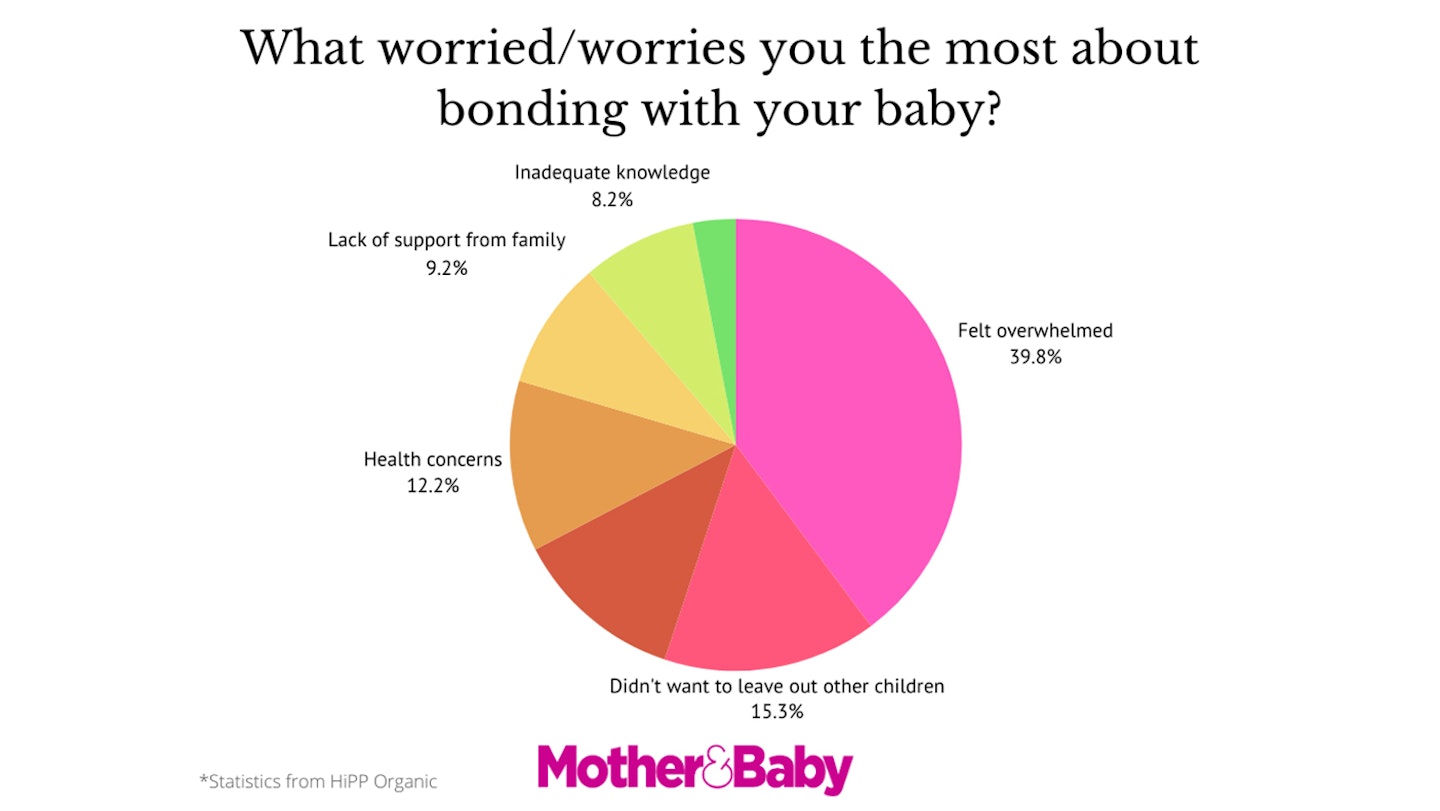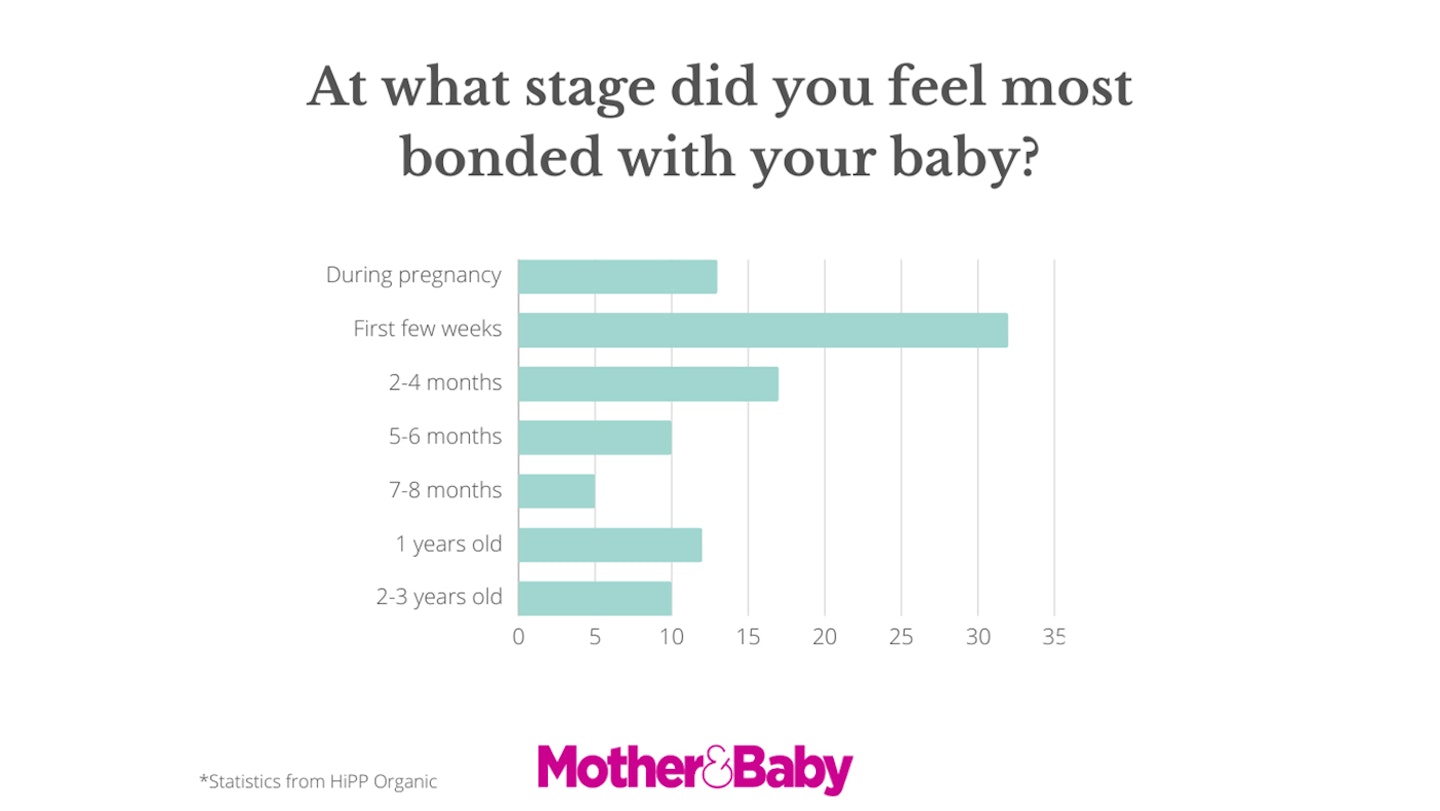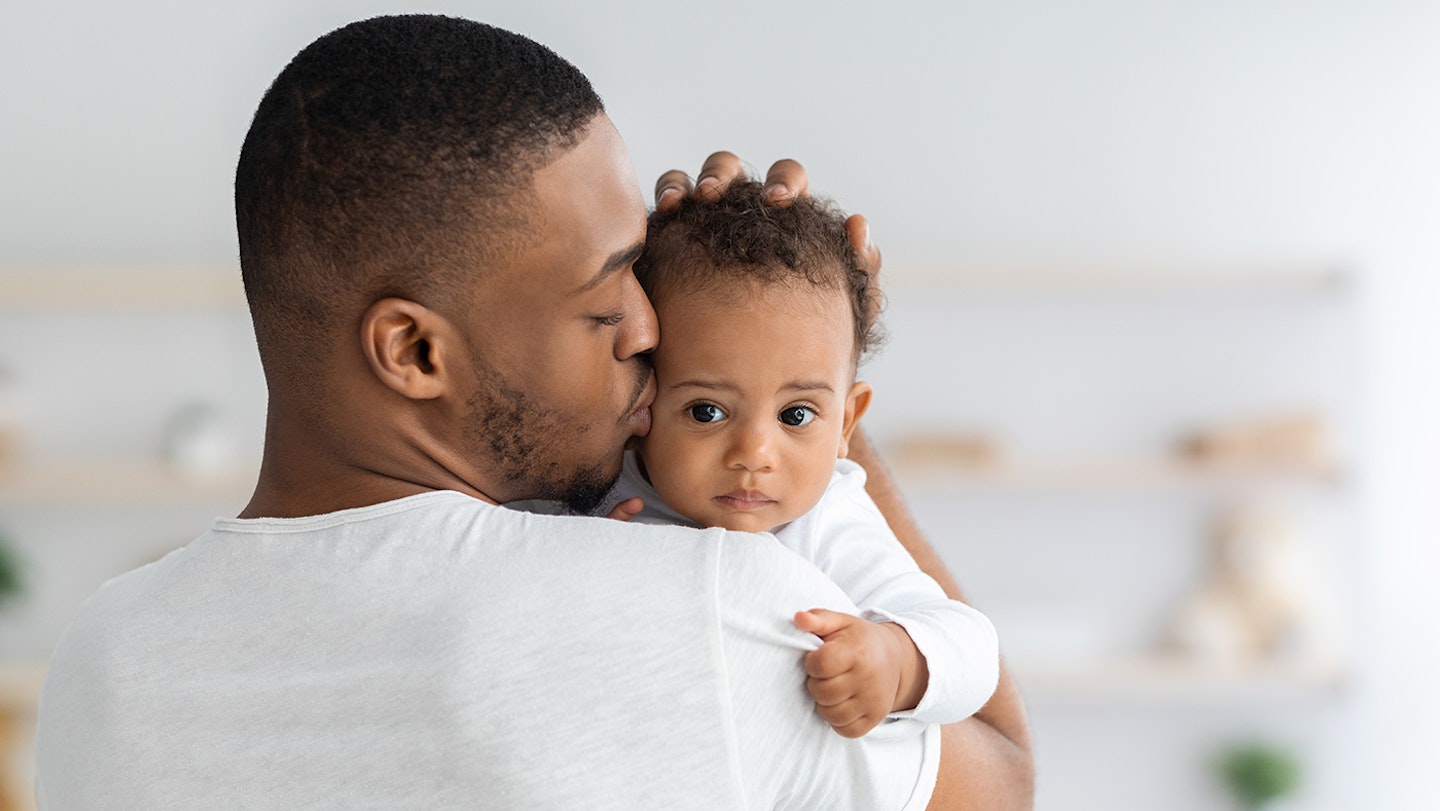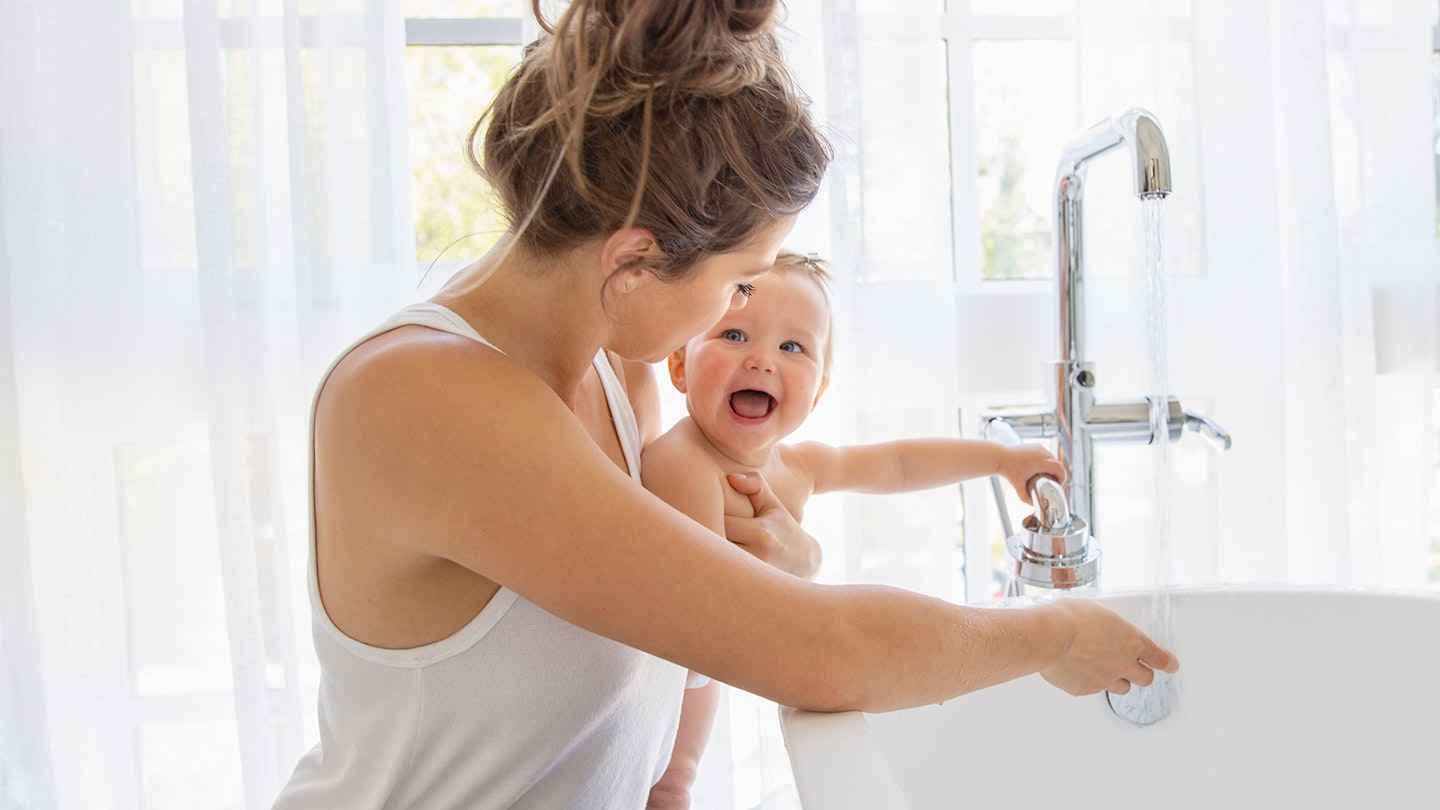The moment you first bond with your baby is unforgettable – whether it’s during pregnancy, the first time you lay eyes on them, or months later when you’ve got to know each other.
However new data from HiPP Organic, which surveyed 2,000 parents, has found that 75 per cent of parents were worried about bonding with their baby.
These concerns were a result of parents feeling overwhelmed (39%), not wanting to seem like they weren’t giving enough attention to their other children (15%) and fear of rejection (12%).

Interestingly, 80 per cent of fathers were worried about bonding with their baby compared to nearly half (48 per cent) of mothers who felt bonded after a few weeks.
The data is part of HiPP Organic's new campaign ‘The Parenting Connection’ which aims to to foster open conversations among new parents.
Try not to fret if you're worried that you haven't bonded with your baby yet. The survey found that 32 per cent of parents find solace in the initial weeks of birth, while others connect deeply at 2-3 years old (10 per cent). The average time it takes parents to establish a connection was six and a half months, showing there really are varied paths to meaningful bonding.

How to bond with your baby
If you're currently pregnant, there are plenty of brilliant ways to bond with your bump. But if your baby is due very soon or even already here, scroll down to read our tips for how to bond with your baby.
Skin-to-skin contact
Holding your baby close to your skin helps regulate their body temperature, promotes breastfeeding, and enhances the parent-child bond.
Talk to your baby
Even if they don't understand the words, your baby will respond to the rhythm and tone of your voice. Narrate your day, sing songs, or simply talk to your baby to create a sense of familiarity. 9 in 10 parents surveyed said talking was their favourite activity to do with their little one.
Eye contact
Babies are drawn to faces. Maintain eye contact while feeding, talking, or playing with your baby. This helps them feel secure and connected. 89 per cent of parents said eye contact helped them bond with their child in the early days.
Respond to cues
Be careful to pay attention to your baby's cues and respond quickly. Whether it's hunger, tiredness, or the need for a nappy change, responding to their needs builds trust and security.

Hold and cuddle
Physical touch is a powerful way to bond with your baby. Hold them, cuddle them, and let them feel the warmth and comfort of your embrace.
Baby massage
Baby massage has many benefits and gently massaging your baby can be a soothing and bonding experience. Use gentle, slow strokes, and ensure the room is comfortably warm.
Read together
Even though your baby may not understand the words, reading together creates a positive association with your presence and helps develop a love for books and storytelling.
Playtime
Engage in age-appropriate play activities. This could include playing with soft toys, making funny faces, or even playing peek-a-boo. Interactive play fosters a sense of joy and connection.
Establish routines
Babies thrive on predictability. Establishing daily routines can help your baby feel secure and create special moments for bonding, such as bedtime rituals.

Include other family members
Encourage other family members to bond with the baby. This not only strengthens the overall family bond but also provides a support system for both you and the baby.
Be patient and flexible
Building a strong bond takes time. Be patient and flexible, adjusting to your baby's needs and cues. Remember that each baby is unique, so what works for one may not work for another.
A journalist since 2015, Emily Gilbert is the Features & Reviews Editor for Mother&Baby and has written for the website and previously the magazine for seven years. Emily writes about everything from the top baby products to pregnancy, fertility and maternal mental health. Specialising in product reviews, Emily is the first to know about all the exciting new releases in the parenting industry.
